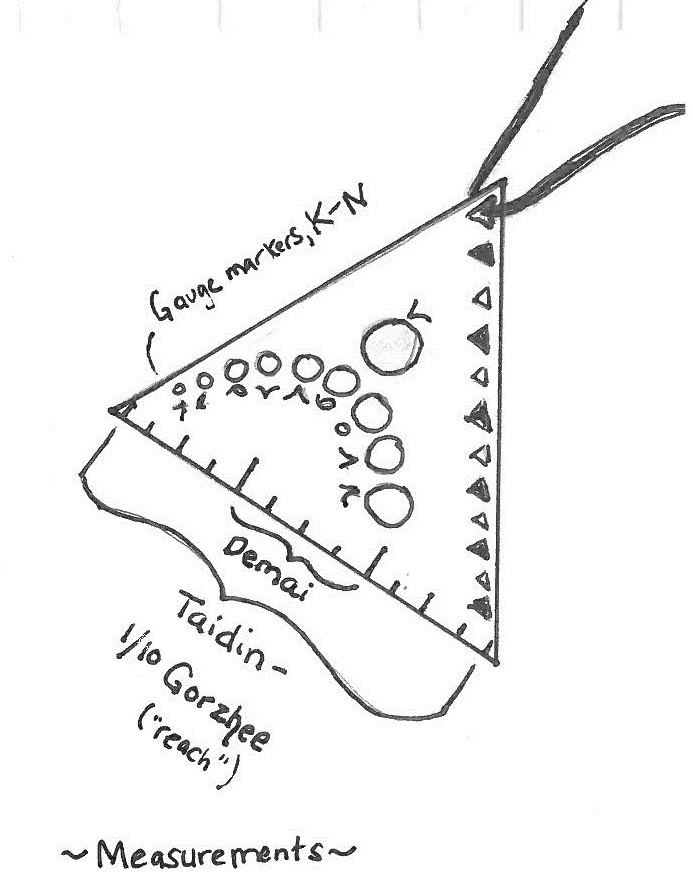
After Discovery, Part Fnarg and Discovery, Part Snarg, for the Finish It! Bingo Round Two
Content Warning: This describes a ritual that led to dozens of skeletons being buried under a mountain. It includes death and violence.
In the end, Aetherist Ovanobina dragged Tekemuzh down deep into the mine, to look at the place where the miners had found the bodies and where every archeologist in the land was now busily pulling out more bodies.
“There are so many…” Tekemuzh had seen death before. It was the nature of what his did, his “parlour trick”, that he could see the strongest emotion that had touched any given thing. His work was not always admissible in court, but that did not stop him from seeing the visions. “I think…” He sat down, because he did not want to fall down. “If I put enough of the visions together, I may be able to determine what the ritual was for. But this level of ritual murder…”
“It gets worse,” Ovanobina interjected, voice solemn and sepulchure. “I’m sorry, but they found a second site.”
Tekemuzh worked around a lump in his throat. He had done so well, so far, in not disgracing himself, but if he had to look at another site — if Ovanobina was saying it got worse — then he was not sure he could keep going as he had. He bowed his head and sought peace. “One thing at a time, then?” he offered through a dry throat. “First, we finish with this site. We see if we can put together the purpose of the ritual. And then we can move on to the next site. And we can put these bodies back to rest.” He touched the brow-bone of the skeleton nearest him with careful fingers. She had been barely an adult… most of them had barely been into adulthood, although the thoughts that came through were scrambled on that matter, strange.
The bones had been down there a long time, that much Tekemuzh could tell. How long, well, that led to some interesting questions, because the numbers he was getting — the weight of centuries — told a story that his history books denied.
It wouldn’t be the first time his history books had been found to be in direct conflict with the evidence of his Tekemuzh’s senses. He ignored the question for the moment. Right now, his work was as he had said it was. “Can you get me someone in here to transcribe, Aetherist? If I have to stop and take notes, it goes much more slowly.”
“I think if I send young Kalaket in here, he likely won’t vomit too often. Uzhnar, on the other hand…” The aetherist headed out into the light, coming back a few minutes later with a scholar so young he probably should still be in an Academy somewhere. “Aetherist Tekemuzh, this is junior scholar Kalaket. Do be nice to him. Kalaket, transcribe as Aetherist Tekemuzh dictates to you, and do not waste his time with questions right now nor any of your theories. That can wait until after dinner. Play nicely, you two.”
Tekemuzh wasn’t all that young, but he was still easily young enough to be Ovanobina’s son. “Yes, ma’am.” He looked at the boy. “Get comfortable. This is going to take a while. I’m going to start with impressions, and some of what I say might make little or no sense. Write it all down anyway. We can sort it out later. Got it?”
Kalaket swallowed and nodded. “I don’t have to be near the skeletons, do I?”
“You only have to be near enough to hear everything I say without asking me to repeat it.” He thought the boy might be younger even than he looked, but perhaps if he had been in the towers of an academy his whole life, he might not be used to the darkness the world could provide.
Tekemuzh waited until Kalaket was settled, and then he put his hand on the forehead of the nearest skeleton.
What followed next was in many ways a blur. Tekemuzh knew he was speaking, and he knew he was seeing, but the images and the words flew too quickly for him to notice them other than as a stream.
“It was one at a time. They took the body and laid it against the stone — not here, on the other side of the wall, oh, the wall — and they started the death out there, so that the first blood, so many lines of blood. There’s a circle around the valley and it’s all death, all of it, a line of blood and then here, all of the caches, where they bled into the stone to enforce the seal. What a seal. So many people, slaves? Captives. They forced them against that stone and they spoke some words. I can almost hear them, A-ee-oh-ne-an, Yen-ah-lee-lee-o?” The words came awkwardly off of Tekemuzh’s Calenyen-trained tongue; he kept reaching for consonants that weren’t there.
He repeated the words; on the third try them came smoother, almost as if spoken by another. “Aheoneyan, yenalilioh, thalshailiohlioh. It was an unwilling sacrifice. ‘Pain will do,’ they told her, ‘if the spirit won’t provide.’ And… oh. Oh, the aether was already in the stone. How did they do that? They laid her against the mountain and the mountain held her there. And then, when it had drunk its fill, then she was carried down into the caves. So many caves. All around the valley…” Tekemuzh whimpered quietly. “They pinned them to the ground here, see the way her wrists are, her ankles? And they let them die. The twelve of them, alone here in the dark. And twelve more and twelve more and… twenty-four caves. So many of them.” He gasped and fell back. “Here sister was here, and her niece, and her cousin. She was still alive when they killed her lover. But…” He closed his eyes, so the remaining impressions came to him as clearly as he could.
“They’re not Bitrani, they’re not Calenyena. Not Arran. They’re short and pale, with hair that is white and yellow. Or orange, like the edges of a fire. They’re hairier than the Bitrani, and their clothing is strange, made out of pelts and… I don’t know what it is. She thinks of her wrap as i-ah-o-a-shee, iaoashi, but I don’t know what it means, just that it’s soaking up the blood, how will I wash that out, she thought. But she thinks of the man stabbing her as — foreigner, stranger. They’re not the same people, even though they look the same. They’re…” Tekemuzh gasped and opened his eyes. “They’re in the valley. There’s a valley there, why have we… oh.”
His throat worked and he stared at the skeleton in front of him. Whatever iaoashi was, it had long ago rotted away. She was small and broad-hipped, with a wide forehead and a large crack in her sternum. “They locked the valley,” Tekemuzh whispered. “All those bodies, all that blood. They sealed themselves in.”
He looked up at Kalaket. “Do you think they’re still there?”
 |
 |
| Support the Thorne-Author |
This entry was originally posted at http://aldersprig.dreamwidth.org/1150221.html. You can comment here or there. 






